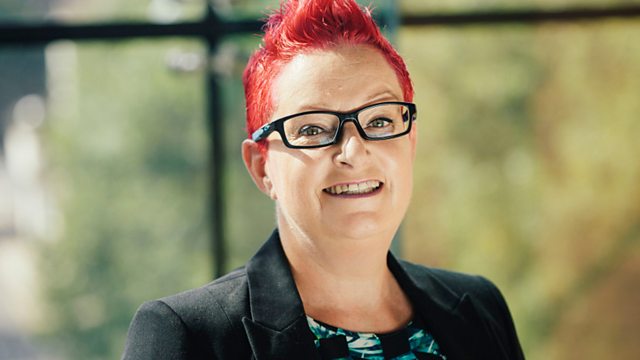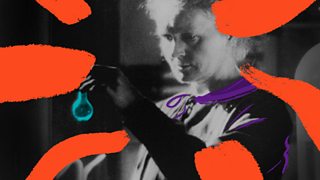Sue Black on women in tech
Why are there so few women in tech? Sue Black tells Jim Al-Khalili how, as a single mum of three small children, she became a software engineer.
Sue Black left home and school when she was 16. Aged 25, she attended an access course to get the qualifications she needed to go to university to study computer science. It was a bit lonely being the only student in a mini- skirt surrounded by a sea of suits, but she came top of the class nonetheless. She signed up to do a PhD (not really knowing what a PhD was) and worked on the ripple effect in software. What happens when you change one bit of code? Does it mess up everything else? A lot of new software is created by building on and adapting existing programmes so these are important questions to ask. In 2003 she embarked on a three year campaign to save Bletchley Park where ten thousand people built some of the first computers and cracked the Enigma code used by the Nazis during World War Two. More than half of the people who worked there were women. No-one had any previous experience of computers. And more than half a century on, there are fewer women working in tech than there were in the 1960s. Sue is determined to change this backwards step. Perhaps another Bletchley Park recruitment drive is needed to encourage more people, women in particular, to engage with tech and help to build our future?
Producer: Anna Buckley
Last on
Broadcasts
- Tue 12 Feb 2019 09:00�鶹������ҳ��� Radio 4
- Tue 12 Feb 2019 21:30�鶹������ҳ��� Radio 4
Featured in...
![]()
Curious Minds
From the Nobel prize to the final frontier, women pushing the boundaries of science
![]()
International Women's Day
Serena, Adele, Malala - just some of the incredible women to celebrate this IWD
Sleep – the mystery state
Is your mind a machine?
Daniel Dennett thinks so. Here is what we learned from his Life Scientific.
Podcast
-
![]()
The Life Scientific
Professor Jim Al-Khalili talks to leading scientists about their life and work.





